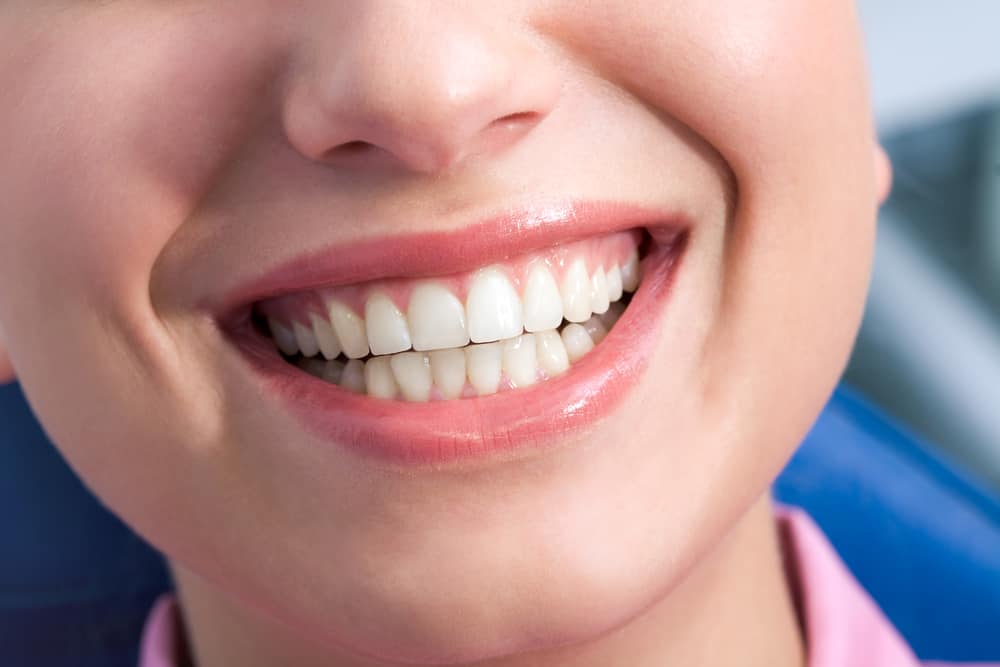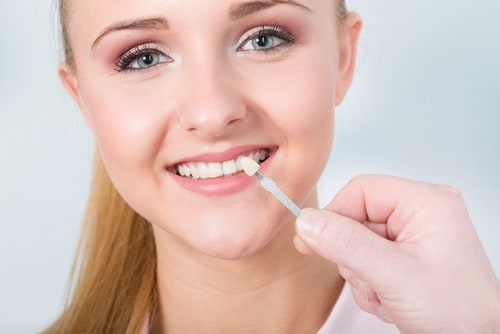Teeth whitening has become a popular way of brightening a smile, but it can have some unpleasant side effects. Have you ever wondered how long teeth sensitivity lasts after undergoing teeth whitening? It is essential to consider when deciding if teeth whitening is right for you.
This article will discuss the causes of teeth sensitivity after whitening, how long it can last, and steps that can be taken to reduce it. Additionally, it will examine any long-term effects of teeth whitening and possible alternatives.
What Causes Teeth Sensitivity After Whitening?
Tooth sensitivity is a common side effect of whitening treatments and is typically caused by the enamel breakdown due to the bleaching agents used in the process. Professional whitening treatments can involve whitening trays or in-office teeth whitening, both of which can cause the enamel to become temporarily weakened. This can lead to sensitivity when consuming cold foods and drinks or in a dental procedure.
The two most common bleaching agents used in whitening treatments are carbamide and hydrogen peroxide. Both of these agents work to break down the enamel temporarily, causing the teeth to become more sensitive. Additionally, acidic foods and drinks can increase the sensitivity of the teeth, as can dentinal hypersensitivity.
For those who experience sensitivity after whitening, it is essential to understand the cause of the sensitivity and how to manage it. Avoiding cold foods and drinks for a few days after the procedure and desensitising toothpaste is recommended. In most cases, the sensitivity should eventually subside, but it can take up to a few weeks for the teeth to fully adjust.
How Long Does Teeth Sensitivity Last After Whitening?
The consequences of teeth whitening can remain in the form of a heightened sense of sensitivity, persisting for an uncertain timeframe. Teeth whitening involves the bleaching of tooth enamel to achieve a brighter smile. This process can be performed professionally or via the use of over-the-counter products. In both cases, the active ingredients may cause sensitivity in the teeth.
This temporary sensitivity can last anywhere from a few days to a few weeks and is usually triggered by cold liquids, cold air, or a sweet taste. Those who experience this sensitivity should consider using toothpaste designed for sensitive teeth. This type of toothpaste is formulated to help reduce the effects of tooth sensitivity. Cold beverages and foods should also be avoided until the sensitivity has subsided.
To minimise the risk of sensitivity after teeth whitening, it is best to follow the instructions provided by the dentist or manufacturer of the product. Professional teeth whitening procedures are typically less likely to result in sensitivity. Taking preventive measures before whitening can help reduce tooth sensitivity risk.
What Steps Can Be Taken to Reduce Teeth Sensitivity?
Being conscious of potential teeth sensitivity is important before whitening for a brighter smile. A few steps can be taken to reduce teeth sensitivity during and after a whitening procedure. Patients should:
- Use lukewarm water when brushing your teeth, as hot water can cause sensitivity.
- Avoid consuming hot drinks or foods for 24 hours after the whitening procedure.
It is also essential for patients to be aware of the enamel and dentin layers of the teeth. The enamel layer is the outermost layer that provides protection, while the dentin layer is the inner layer that contains microscopic tubes that lead to the nerves. When teeth whitening occurs, the enamel and dentin layers can become exposed, leading to sensitivity.
To reduce this sensitivity, dental patients should also focus on their regular dental care routine, such as brushing and flossing regularly. This can help reduce the sensitivity that can sometimes occur after teeth whitening.
Patients should also be aware that some products are specifically designed to reduce sensitivity after teeth whitening. These products can help to reduce sensitivity and help make teeth whiter. Speaking to a dentist before undertaking any whitening procedure is important, as they can advise the best course of action for the individual.
By following these steps, dental patients can reduce the sensitivity associated with teeth whitening and achieve a brighter, whiter smile.
Are There Any Long-Term Effects of Teeth Whitening?
While teeth whitening can result in an improved aesthetic, it is important to consider the potential long-term effects that this procedure may have.
For example, a recent study has found that teeth whitening can increase tooth sensitivity in some individuals. Therefore, it is important to consult with a dental professional before teeth whitening, as they can provide guidance and advice on the best approach. A professional can also identify any underlying issues contributing to the sensitivity and recommend appropriate action.
When teeth whitening, it is important to follow the instructions provided by the dental professional, as this will reduce the risk of damage to the teeth. Additionally, using a soft-bristled toothbrush and fluoride toothpaste is important, as this will help maintain effective oral hygiene and reduce the effects of the whitening. It is also important to avoid using whitening products containing harsh ingredients, as these can further increase sensitivity.
Teeth whitening is a popular choice to improve the appearance of teeth and can provide immediate results. However, it is important to remember that this procedure may have long-term effects, and taking steps to reduce sensitivity is important. Consulting a dental professional before teeth whitening is essential to ensure the best results and maintain a healthy smile.
Are There Alternatives to Teeth Whitening?
Alternative teeth whitening approaches exist that may provide similar aesthetic benefits with fewer risks of developing sensitivity. These include using whitening kits, custom trays, or visiting a dental office.
Whitening kits can be purchased at stores and are usually the least expensive option. However, these kits may not be as effective as professional treatments. They can sometimes cause potential side effects such as chemical burns or pain signals being sent through the dentinal tubules.
Custom trays fit the individual’s teeth and may be more effective than store-bought whitening kits. However, they can be more expensive and may cause sensitivity if incorrectly used.
Finally, visiting a dental office for teeth whitening can be the most expensive option, but it is also the safest and most effective. The dentist can counter potential teeth sensitivity issues and provide the best treatment options for achieving a white smile.
No matter which teeth whitening method is chosen, taking the proper precautions to prevent teeth sensitivity is important. This may include avoiding very hot or cold food and drinks or using toothpaste for sensitive teeth. Additionally, it is important to follow the directions that come with any teeth whitening product and any advice given by a dentist. Doing so will help reduce the risk of developing teeth sensitivity and achieve the desired aesthetic results.
Teeth whitening can be a great way to improve the appearance of your smile, but it is important to consider all of the potential risks and benefits before deciding on a treatment option. With the right precautions and treatments, teeth whitening can be a safe and effective way to achieve a brighter smile.
Key Takeaways
The results of teeth whitening can often be seen almost immediately. However, the effects on teeth sensitivity can last for days or weeks after the procedure. Taking the necessary steps to reduce teeth sensitivity, such as desensitising toothpaste and avoiding hot and cold foods, can help lessen the duration of the discomfort.
Despite the impressive results of teeth whitening, there is always the risk of long-term effects. Alternatives like dental veneers may provide a more permanent solution without the associated risks.
In the end, an individual’s decision to whiten their teeth should be made carefully and with consideration of the potential risks and benefits. Like in many aspects of life, a balance must be struck between pursuing beauty and preserving health.
For those seeking a permanent solution to brighter teeth, Ashfield Family Dental in Ashfield, NSW, can provide professional and safe teeth whitening services with minimal risks.




